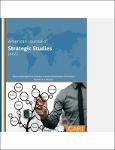| dc.description.abstract | Purpose: The study aimed to determine the effect of record management practices on the performance of produce dealers in lira city, Uganda. Specifically, the examined record filling, record retention and record retrieval on performance of produce dealers.
Methodology: The study adopted a cross-sectional study design, which employed a mixed methods approach of both quantitative and qualitative methods. The study population consisted of 195 respondents, which comprised of produce dealers in Lira City. Both the Simple random sampling technique and purposive sampling technique were used to select a sample of 103 participants. The researcher adopted Self-Administered Questionnaires to collect quantitative data and an interview guide to collect qualitative data. Both descriptive statistics (mean, and standard deviation), and inferential statistics (correlation and regression) were used to analyse numerical data. Content analysis was used to analyse qualitative data.
Findings: The findings revealed a statistically significant positive relationship between record filling, record retrieval and performance while insignificant relationship was realised between record retention and performance. Further, it was revealed that record filling and record retrieval yields a significant effect on performance while record retention yields insignificant effect on performance.
Unique contribution to theory, policy and practice: The study concluded that record management significantly affects performance of produce dealers in Lira City. It is encouraged that, for good performance of produce dealers, the authorities of Lira City should enhance that capacity of business people in record management by training them in record management. This study is very instrumental in unveiling the pertaining issues in the field of produce dealers, which has become a very lucrative business in Uganda in terms of how record keeping is a central aspect in their day-to-day operations. | en_US |

